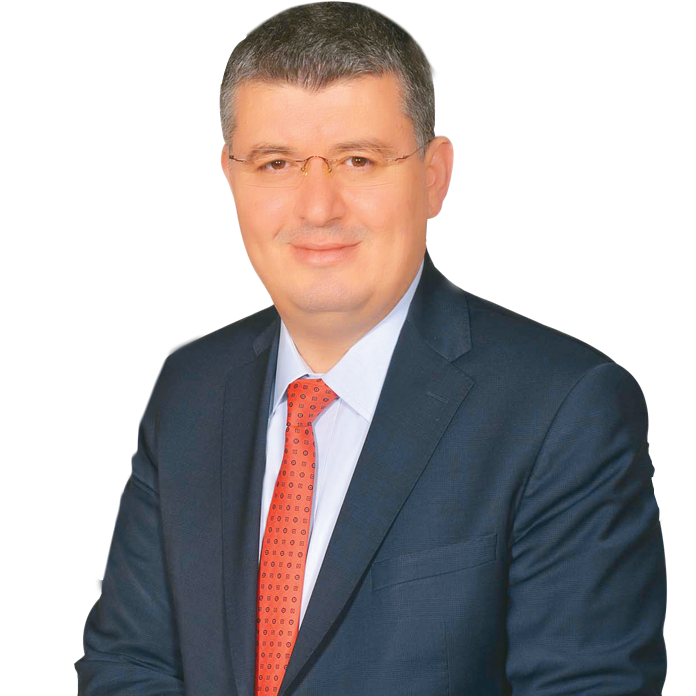On the same day, the New York Southern District Attorney’s Office that is looking into the case made a single-paragraph statement:
“Foreign banks and bankers have a choice: You can choose willfully to help Iran and other sanctioned nations evade U.S. law, or you can choose to be part of the international banking community transacting in U.S. dollars. But you can’t do both.”
Can we interpret this as a statement made remaining faithful to evidence or as an ascription?
Upon the statement by the New York Attorney’s Office, I spoke to someone who worked in top positions in Halkbank back then and is able to know everything in full detail and who is in a position to know whether the alleged crimes in the case that is being tried in the U.S. really has any legitimacy.
Based on the statement by the New York Attorney’s Office, I asked this person every question that came to mind. The questions I asked and the responses I received can be summarized as follows:
Answer 1: It is not true at all. In that period, Halkbank was extremely meticulous in its actions.
Answer 2: Yes, that is how it was done. The sanctions have three headlines. Prohibited goods, prohibited company, prohibited bank. The list of goods, companies and banks on which sanctions are imposed is published very frequently.
After investigating the requests it received from Iran, Halkbank then did business with those that followed the conditions of the sanctions.
There were no deviations whatsoever.
Question 3: Well, why was this trade conducted with Iran? What kind of a role did Halkbank assume?
Answer 3: When the decision to impose sanctions on Iran was made during the Obama administration, we worked on how we could continue business with this neighboring country without violating them.
Turkey, being Iran’s neighbor, had a couple of exceptional rights in accordance with the embargo rules.
The process: The payment for the oil and natural gas Turkey buys from Iran was kept at Halkbank largely in the form of Turkish lira and limited in the form of euros.
In response to this, the goods produced by Turkey and imported from abroad were exported to Iran.
Until 2013, gold trade was not included within the scope of sanctions.
When on this date, sanctions were imposed on gold trade as well, this transaction was also ended from then onward.
Question 4: Was there no risk to this trade? Why did Halkbank assume a role in this business? Did you not think it would lead to problems in the future?
Answer 4: Other banks wanted to get into the business too. Halkbank’s advantage was that it had a representative office in Tehran.
Also, the Iranian central bank had an account at Halkbank. If there was any suspicious situation concerning the transactions, it would never have happened.
There is no crime that was committed.
Question 5: Did you receive any warnings from the U.S. during that process?
Answer 5: Back then, David Cohen, U.S. undersecretary for terrorism and financial intelligence, came to Halkbank and carried out investigations concerning these transactions and asked questions. After our colleagues presented all the documents to him and explained the situation, making obvious that he was convinced, he returned to his country. There was no warning after that whatsoever.
Question 6: So, what happened that the situation came to this?
Answer 6: There is a bank examiner named Osman Zeki Canıtez, who fled to the U.S. after the Fetullahist Terror Organization (FETÖ) investigations started. A year ago, before this matter came up on the agenda in Turkey, this person was given a special task to work on this matter. There is a cooperation to produce crime. Back then, FETÖ’s English-language media outlet, Today’s Zaman, published numerous articles against Halkbank. It is clear now for what purpose those articles were published.
Question 7: So, in this case, what is the U.S.’s real problem? Why has such a situation come to be?
Answer 7: The issue is, “Why did you use your own currency and not my currency in trade with Iran?” The U.S. does not want to see anything that will harm the dollar’s dominance in the international sphere. Hence, despite conducting no transaction that would violate sanctions, the U.S. is trying to produce a crime from this. Second, we are talking about a trade worth close to $40 billion. The money from this trade remained in Turkey, not in dollars but in the Turkish lira.
In a sense, Turkey’s need for the dollar declined.
The New York Attorney’s Office’s statement I mentioned earlier, coincides with the answer to this last question.
In this case, both Halkbank and the government that took a political initiative in trade with Iran are essentially being accused of doing these transactions without using the dollar.
So, where is the law and justice in all this?




















